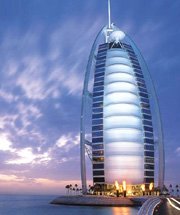
- Packages
- Destination
-
Attraction
By Category
Top Attraction

- Agents
- Car Rentals
- Hotels
Richmond, the capital city of Virginia, is a vibrant and historically rich destination located along the James River. As one of America's oldest major cities, Richmond has played a significant role in the nation's history, particularly during the Revolutionary War and the Civil War. Today, it combines its rich past with a modern urban vibe, featuring museums, art galleries, restaurants, parks, and scenic riverfronts. Whether you're interested in history, architecture, food, or outdoor adventures, Richmond offers something for everyone.
Richmond is conveniently accessible by car, train, bus, and air. Located at the intersection of I-64 and I-95, it's about a 2-hour drive from Washington, D.C., and about 1.5 hours from Norfolk. If you’re flying, Richmond International Airport (RIC) is the main airport, offering domestic flights and car rental services.
Amtrak provides train service to the city through the Main Street and Staples Mill Road stations. Greyhound and Megabus also serve the city. Once in Richmond, you can use local buses, rideshare apps, or even walk or bike to explore its compact downtown area.
Richmond experiences four distinct seasons. Spring and fall are mild and comfortable, with average temperatures ranging between 60°F and 75°F. Summer (June to August) is hot and humid, with highs often reaching the 90s°F. Winters are cold but generally mild, with temperatures ranging from the mid-30s to upper 40s°F and occasional snow.
The best times to visit are during spring and fall, when the weather is pleasant and the city’s parks and gardens are at their most colorful. Always check the forecast if you're planning outdoor activities like river walks or hiking.
Richmond is a year-round destination, but the best times to visit are between April and June or September and November. These periods offer moderate temperatures, blooming flowers, fall foliage, and fewer tourists. Attractions in the city generally open between 9:00 AM and 5:00 PM, but hours can vary by season and day.
Many festivals take place during the spring and fall, such as the Richmond Folk Festival in October or the Arts in the Park event in May. Summer also brings concerts and outdoor movies by the river.
Richmond is famous for its deep historical roots, especially related to the American Civil War. It served as the capital of the Confederacy and is home to many important historical sites, including battlefields, cemeteries, and monuments. It's also known for its thriving arts and culinary scenes, as well as its riverfront activities.
As the capital of Virginia, Richmond is also a center for politics, law, and business. The city has evolved into a modern hub with universities, a growing tech industry, and cultural diversity, making it both historically important and forward-looking.
Richmond has no general entrance fee since it's a city, but some attractions do require tickets. Popular places such as the Virginia Museum of Fine Arts (VMFA) offer free general admission, while others like the American Civil War Museum or Maymont Mansion charge entry fees ranging from $5 to $15.
You can explore many areas, including public parks, riverwalks, and outdoor art installations, at no cost. Walking tours, Segway tours, and guided historical tours are also available and vary in price.
Founded in 1737, Richmond has been at the heart of many pivotal events in U.S. history. It was the site of Patrick Henry’s famous “Give me liberty or give me death” speech and later became the capital of the Confederate States during the Civil War. Many buildings in Richmond date back to the 18th and 19th centuries.
Architecturally, Richmond boasts a mix of styles—from colonial homes and Victorian mansions to modern skyscrapers. Neighborhoods like Church Hill and The Fan District are well known for their beautifully preserved historic homes and cobblestone streets.
Richmond offers a wide range of activities for visitors of all interests:
- Richmond was the capital of the Confederacy during the Civil War.
- The city is home to one of the oldest electric streetcar systems in the U.S., established in 1888.
- The James River runs through the heart of the city and features Class III and IV rapids.
- Richmond has more Civil War battle sites than any other U.S. city.
- The city has a strong craft beer scene, with more than 30 local breweries.
- Edgar Allan Poe spent much of his early life in Richmond; the Poe Museum is located in the city.
- Wear comfortable shoes as many attractions, especially downtown and the riverfront, are best explored on foot.
- Use the GRTC Pulse bus rapid transit system for easy travel around the city.
- Plan ahead for parking if visiting during festivals or weekends—public garages are available.
- If you're a history buff, consider booking a guided tour to make the most of Civil War and colonial-era sites.
- Try the local food—Richmond is known for its diverse dining scene, especially Southern cuisine and farm-to-table restaurants.
- Bring a camera—the city’s street art, historic neighborhoods, and river views offer plenty of photo opportunities.